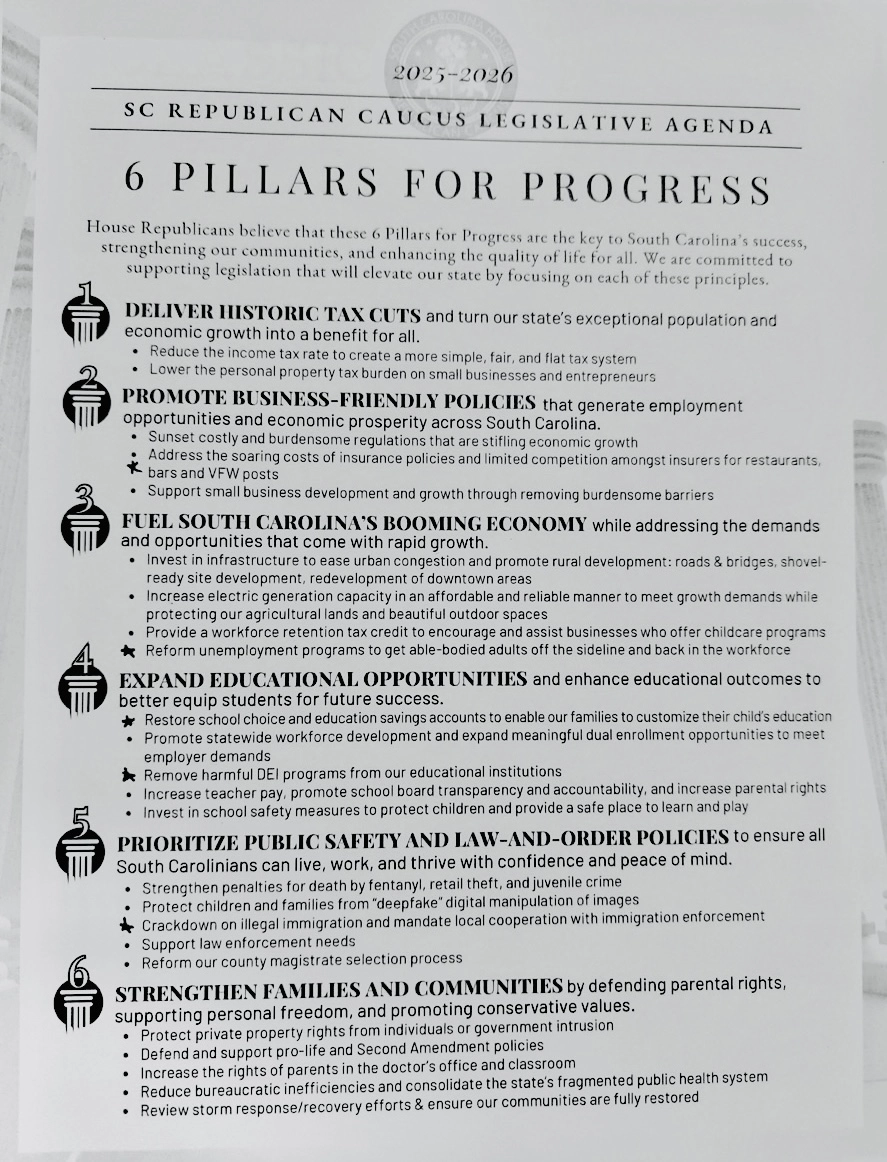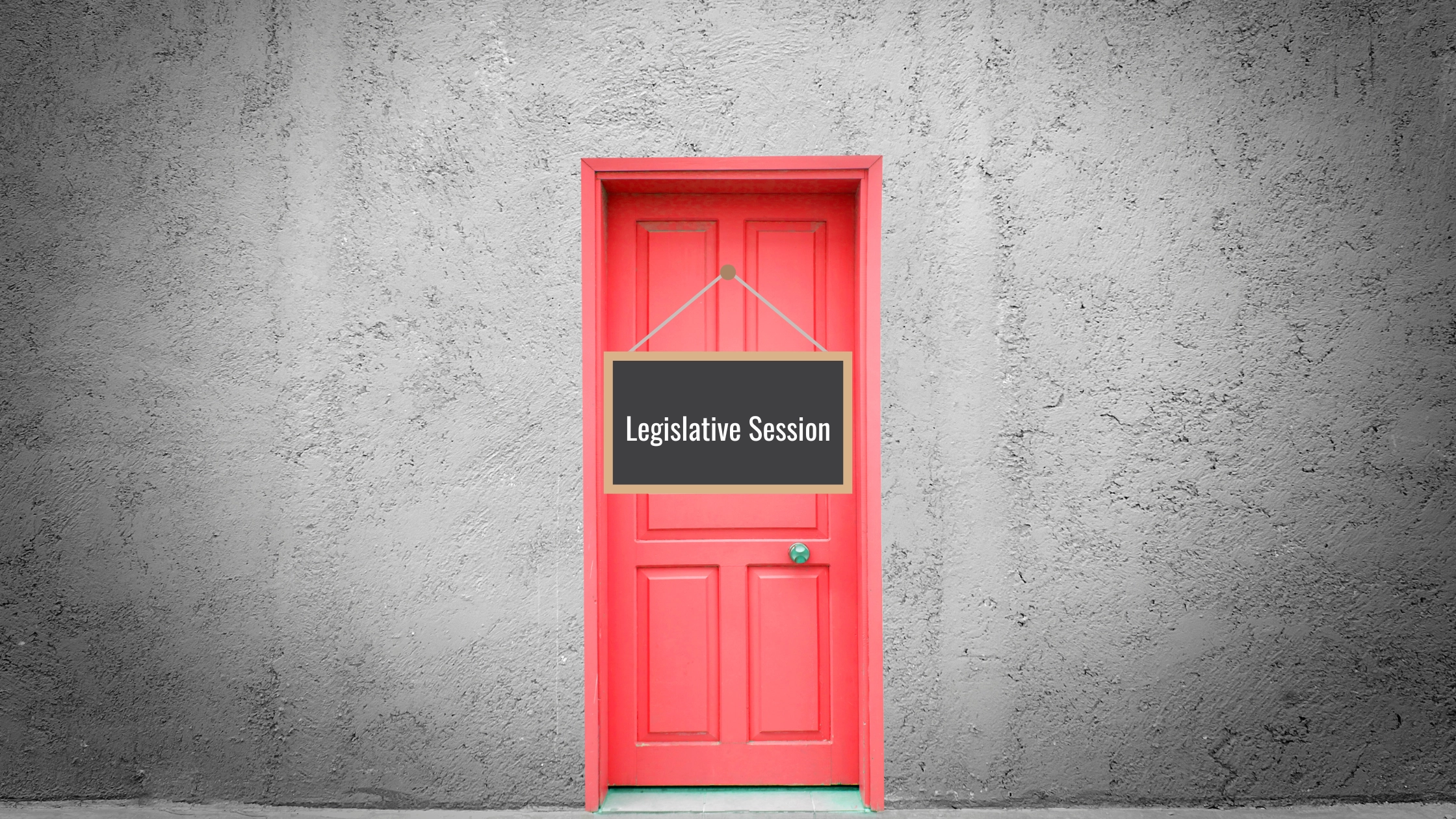Ever wonder why those flashy legislative agendas seem to flood your social media feed every fall? Yeah, it’s not a coincidence. Prefile bill season is coming up, and legislators are busy setting the stage, getting you all prepped for the main act. They’re rolling out the red carpet with bold, attention-grabbing headlines, all under the guise of "We Are For The People.” It's empowering—or at least, it’s meant to feel that way.
But let's back up for a second. What even is a legislative agenda? Fair question.
Think of these agendas as wish lists—but, whose wishes are they really? When you dig deeper, you’ll discover, it's rarely yours. Most of the time, it’s the factions—the special interests, think tanks, lobbyists, and other power players—getting their wishes granted. And honestly, this should make us all pause and question just what the heck is going on. Because at the end of the day, your elected officials—the ones who claim to represent you—should have one job above all—defending the rights outlined in our beautiful Constitution. Instead, we’ve got a bunch of legislators parading these policy ideas around as promises of “restored freedoms” and “bold progress,” all neatly packaged to grab your attention and tug at your heartstrings.
Do they genuinely believe in these agendas, or are they just trying to tick a box off their campaign checklist? Hard to say, but they’re certainly good at selling the story. The truth is, these legislative agendas are meant to get you emotionally invested, to make you believe you’re seeing real progress or a reclamation of freedom.
With the 2025 session just around the corner, it’s more crucial than ever to ask for the details behind these sensationalistic headlines and ask whose interests are really being served here? Are we just falling for the same old flashy headlines, or are we finally ready to look beyond the surface?
The Prepping Phase
The prepping phase kicks off in November, right before the prefiled bills roll out. Legislative groups roll out their bill agendas. It's all about building excitement and gaining your buy-in—setting the stage with that feel-good spin. "We will cut income taxes!" they shout—but where’s the plan? Where's the roadmap that makes it real? If you're lucky, you might find a few vague details buried in the prefiled bills that come out in Dec. But good luck connecting the dots to the headings—it almost seems like they don’t want you to figure it out. Or perhaps, those dots were never meant to connect at all.
Vocabulary: Prefiled bills: Proposals submitted before the legislative session starts, often to signal priorities, gauge public reaction, or give special interests a head start in shaping policy.
Please remember—and I’m repeating this because it’s crucial—legislative agenda headlines are designed to make you react impulsively, not think critically—just like those flashy news headlines meant to grab your attention without giving you the full picture. These headlines are effective because they tap into concerns that many people genuinely care about, making them feel like positive change is just around the corner.
Let’s unpack this by diving into a few pillars from the SC Republican Caucus’s 2025 Legislative Agenda—6 Pillars for Progress.

By the way, the examples below aren’t in pillar order.
We begin with Pillar 4: "EXPAND EDUCATIONAL OPPORTUNITIES and enhance educational outcomes to better equip students for future success."
Sounds great, doesn’t it? Words like "expand" and "enhance" spark that instant positive reaction—"Yes, this is what we need!" “Save our children from public school indoctrination!” But hold on. Could this be another attempt to pass a government-run school choice program, complete with all the usual strings attached? Indeed it is, now wrapped in feel-good phrases like "customizing your child’s education."
A point to remember—South Carolina already has school choice. Parents have options–they can choose to homeschool, use public schools, charter schools, or private schools.
If anything, this headline should make public school parents question—hasn’t improving education always been the goal?
And let’s not forget, this program was already ruled unconstitutional, yet here we are again. Are they just going to keep pushing it until it sticks—or until they manage to repeal the Blaine Amendment entirely? Let’s not overlook that they tried that last session too.
Side note. Every time lawmakers draft, debate, and push a bill, it comes with a price tag for taxpayers.
Oh, and please visit our tag titled "School Choice" and read all our articles on why government school choice programs are not conservative and why passing this type of legislation will be the catalyst to removing educational freedom.
While education policies are presented as major steps forward, they’re not the only areas being recycled under the guise of progress. Let's turn our attention to public health, where we see similar tactics at play—repackaging previous ideas and hoping they land differently this time.
Pillar 6, Point 4: The Return of the Health Czar Bill
Oh, it's back—"Reduce bureaucratic inefficiencies and consolidate the state's fragmented public health system." The Health Czar bill is getting ready to take the 2025 legislative spotlight again. Seriously, did anyone really think it was dead? It’s like that houseplant you keep trying to get rid of, but somehow it always ends up on the windowsill again—just when you thought you'd finally moved on.
Pillar 1: Income Taxes
Then there's the recurring promise: "Reduce the income tax rate to create a more simple, fair, and flat tax system." It’s the same line every session. But what does simple, fair, and flat actually mean in practice? Instead of dancing around the issue, why not just eliminate the income tax entirely? That would actually reduce the burden. And while they’re at it, not creating new government programs—which we know are coming—would help prevent tax hikes down the line.
Next Up, Pillar 3, Point 2
"Increase Electric Generation Capacity in an Affordable and Reliable Manner." Affordable and reliable—according to whose standards? Is this market-led, or just another government scheme to decide who wins and loses in the energy sector? Or maybe it’s about expanding clean energy—which the climate change and ESG advocates will love.
Pillar 3, Point 3: "Provide a Workforce Retention Tax Credit to Encourage Childcare Programs."
Shouldn’t businesses decide how they handle childcare without the government meddling? And the whole point of tax credits is to manipulate behavior.
Pillar 4, Point 3: The DEI Debate—Again
"Remove Harmful DEI Programs from Our Educational Institutions." Again? Didn’t we already try this, and the results weren’t exactly worth celebrating or repeating? Plus, DEI is only one of the many phrases the left uses under these equitable programs. Good luck trying to remove them all without making them worse.
Pillar 6: Oh No, Parents, Get Ready!
"Strengthen Families and Communities by Defending Parental Rights." Expect a bill labeled as a "Parental Bill of Rights" or "Families Rights and Responsibilities," but it will be packed with language that does the exact opposite—devaluing real parental authority by creating opportunities for government interference.
To be fair, not all legislators are out to erode parental rights—sometimes they genuinely believe they’re doing what’s best. But the road to unintended consequences is often paved with good intentions, and that's precisely the concern here.
Pillar 6, Point 3: "Increase the Rights of Parents in the Doctor’s Office and Classroom."
How are we supposed to interpret this? Unless lawmakers are willing to repeal laws that strip parental rights—like medical mandates, compulsory education, or allowing 16-year-olds to make healthcare decisions without consent—it’s just a polished front for a concerning agenda. Bills like these don’t protect rights; they pave the way for more laws that usurp parental rights.
So, South Carolinians, as these agendas make their rounds, it’s smart to hold off on the excitement. Wait for the actual bills—the ugly truth is often in the details, with hidden costs and clauses that expand government power.
There’s this notion that legislators have to pass tons of laws every session. And they do—hundreds of them. But should they? Their real job is to protect the Constitution, not pander to factions or cater to every whim. They should be scrutinizing every bill and asking—is this constitutional? Or is it just growing state goverment, raising taxes, serving special interests, and handing more control to unelected bureaucrats?
In South Carolina, members of the General Assembly are required to take the following oath before assuming their duties:
"I do solemnly swear (or affirm) that I am duly qualified, according to the Constitution of this State, to exercise the duties of the office to which I have been elected (or appointed), and that I will, to the best of my ability, discharge the duties thereof, and preserve, protect, and defend the Constitution of this State and of the United States. So help me God."
This oath is prescribed in Article III, Section 26 of the South Carolina Constitution.
Additionally, South Carolina Code Section 2-3-10 mandates that all elected members of the General Assembly take this oath before commencing their official responsibilities.

We should be asking the same question before supporting any bill based on its catchy title. Stay informed, challenge your legislators, and remember—flashy headlines almost never tell the full story.
Please consider reading our "Tips to Reading a Bill" series to help you find the bad stuff in these bills.
Disclaimer: The views expressed in this article are those of the author and do not constitute legal or professional advice. ConservaTruth assumes no liability for any actions taken based on this content. Read more.
Listen to this short audio to find out why you should subscribe to our weekly email updates.
Subscribe to ConservaTruth's Email Newsletter for curated insights on South Carolina's legislative activities and conservative viewpoints, delivered straight to your inbox! With vetted and easy-to-understand information, our newsletter empowers you to become an informed and engaged citizen, actively participating in safeguarding our cherished Constitutional values. Don’t miss out on crucial updates—join our community of informed conservatives today!






Comments